Fire is an event controlled by fuels (like trees, grasses, and shrubs), weather, and topgraphy / terrain. Fire has existed throughout all time periods, and prior to the appearance of humans in North America, the ingredients for fire were largely controlled by climate.
Since human presence, ignition sources and fuels have been modified; people have changed their environment. As a result, ecosystems have adapted to wildland fires, defined as all fires that burn in natural environments. The natural role of wildland fire, an important ecological force, cannot be ignored, because fire greatly influences ecosystems. Fire's influential role as an ecological force, similar to that of other natural phenomena, such as floods, earthquakes, and hurricanes, is discussed in the following sections.
Highlights
-
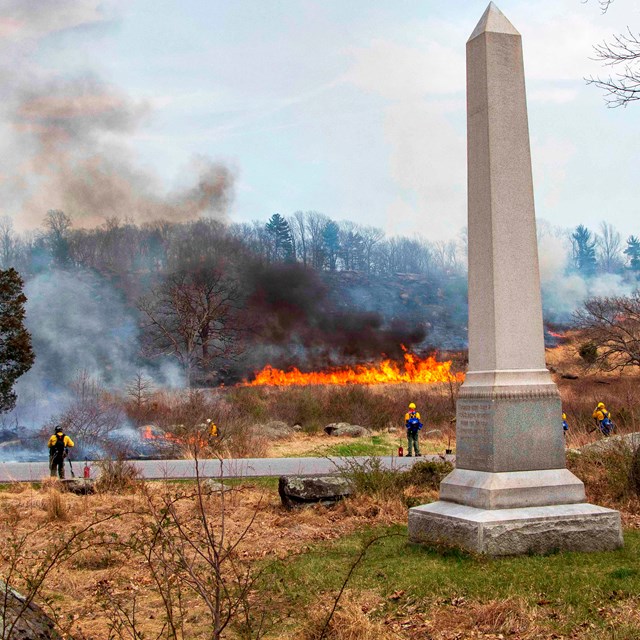 Cultural Interpretations & Human Use
Cultural Interpretations & Human UseFire has been a benevolent, mystical and religious symbol of great significance for cultures throughout the world.
-
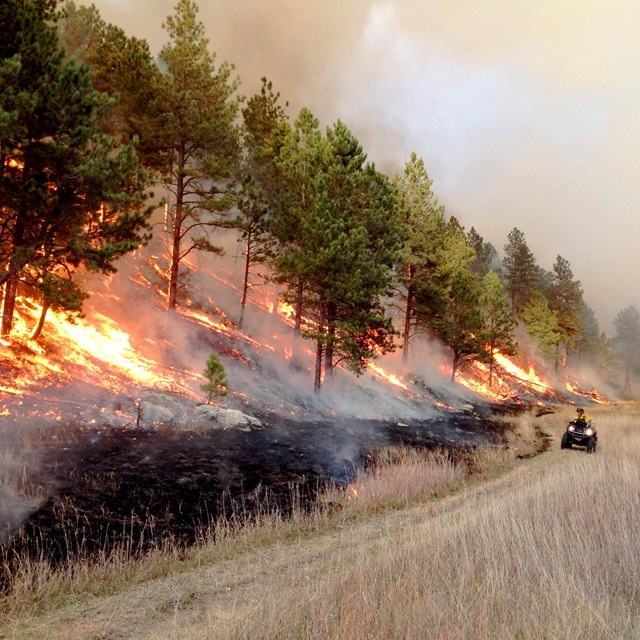 Wildland Fire and Ecosystems
Wildland Fire and EcosystemsFire affects different landscapes in varying ways, and many depend on fire to maintain the ecosystem's stability and diversity.
-
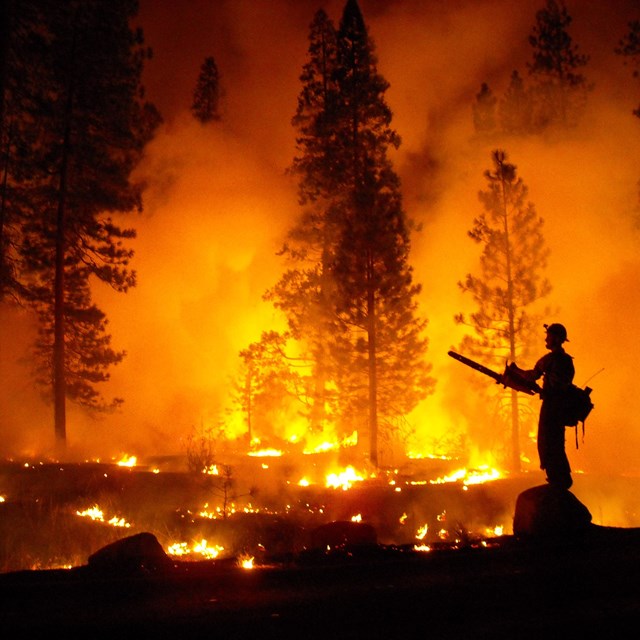 Fire Behavior
Fire BehaviorFire is influenced by many factors, like geography, climate, weather, and topography.
Featured Topics
-
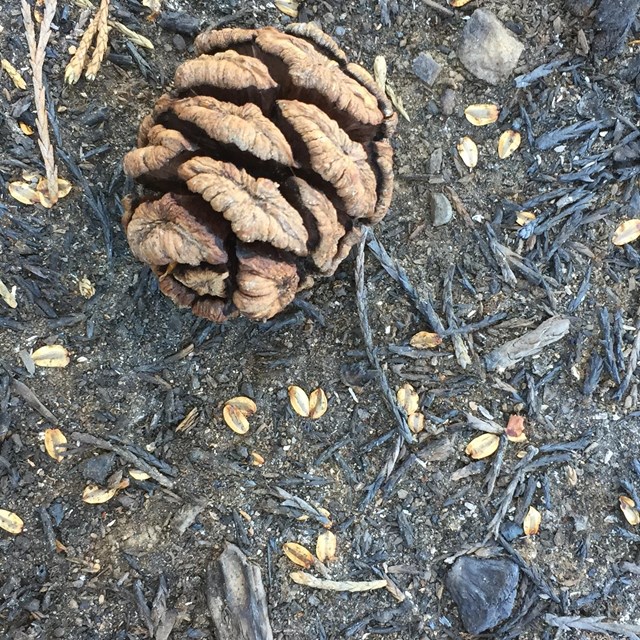 Fire Ecology
Fire EcologyFire ecology is a branch of ecology that concentrates on the origins of wildland fire and its relationship to the environment.
-
 Fire Effects Monitoring
Fire Effects MonitoringResearch on the effects of fire has been occurring for years in the national parks.
-
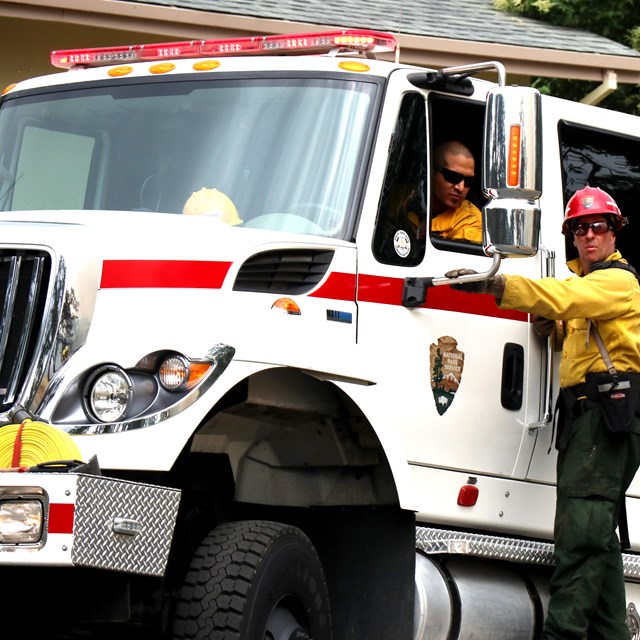 Fire Engines
Fire EnginesMost parks are located away from urban areas and maintain their own wildland fire protection and suppression equipment.
-
 Fire Management Personnel
Fire Management PersonnelIt takes many different types of people with a variety of skills to manage a fire.
-
 Fire Spread and Suppression
Fire Spread and SuppressionThere are three general patterns of fire spread recognized.
-
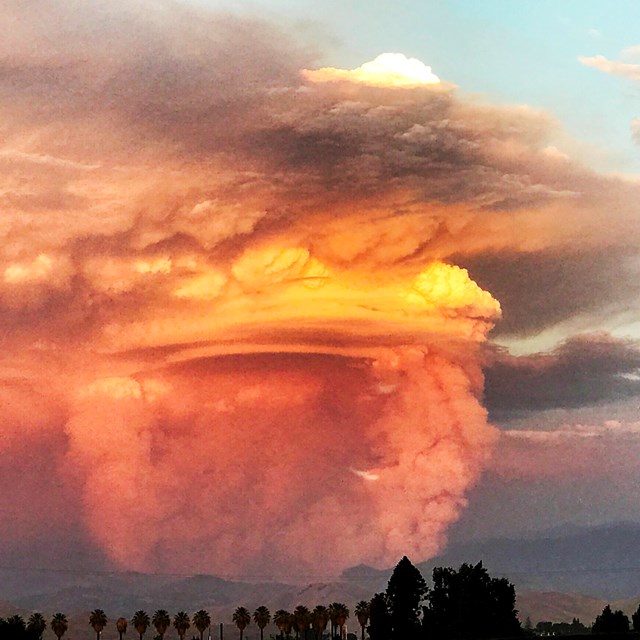 Fire Weather: Watches & Warnings
Fire Weather: Watches & WarningsFire Weather Watches and Red Flag Warnings are used to convey the possibility of severe fire weather to wildland fire agencies.
-
 Fireline Construction
Fireline ConstructionFireline is a break in fuel, made by cutting, scraping or digging into the earth.
-
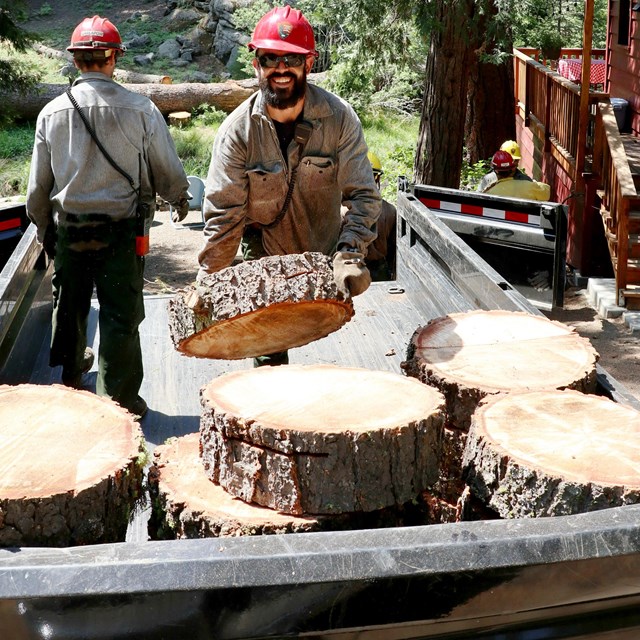 Hazardous Fuel Reduction
Hazardous Fuel ReductionFuel reduction projects and vegetation treatments have been proven as a means of mitigating wildfire hazards.
-
 Incident Command System (ICS)
Incident Command System (ICS)The Incident Command System is used to manage people and resources during many different types of incidents including fire, rescues, etc.
-
 Incident Command System Levels
Incident Command System LevelsThe Incident Command System (ICS) is flexible, scaling up or down as complexity changes and the needs of the incidents change.
-
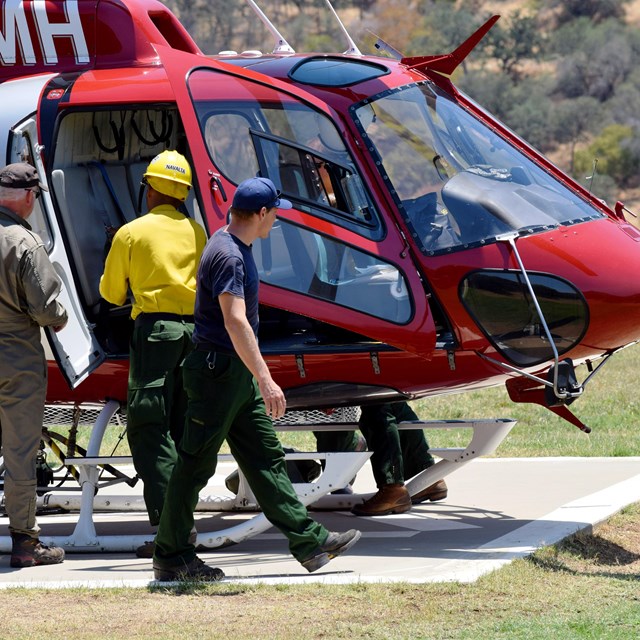 Preparedness Levels
Preparedness LevelsThere are five levels of preparedness typically used at a regional and national level.
-
 Prescribed Fire
Prescribed FireFire managers may "prescribe" a treatment for resource benefits or research.
-
 Understanding Fire Danger
Understanding Fire DangerCombination of both constant and variable factors that affect the initiation, spread, and difficulty to control a wildfire on an area.
-
 Wildfire Causes and Evaluation
Wildfire Causes and EvaluationWildfires can be caused by nature, such as lava or lightning, but most are caused by humans.
Last updated: May 4, 2022
